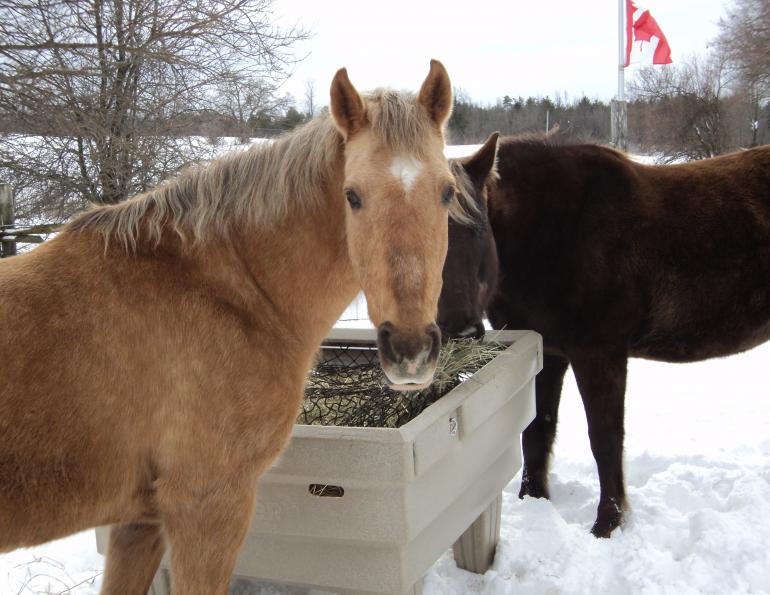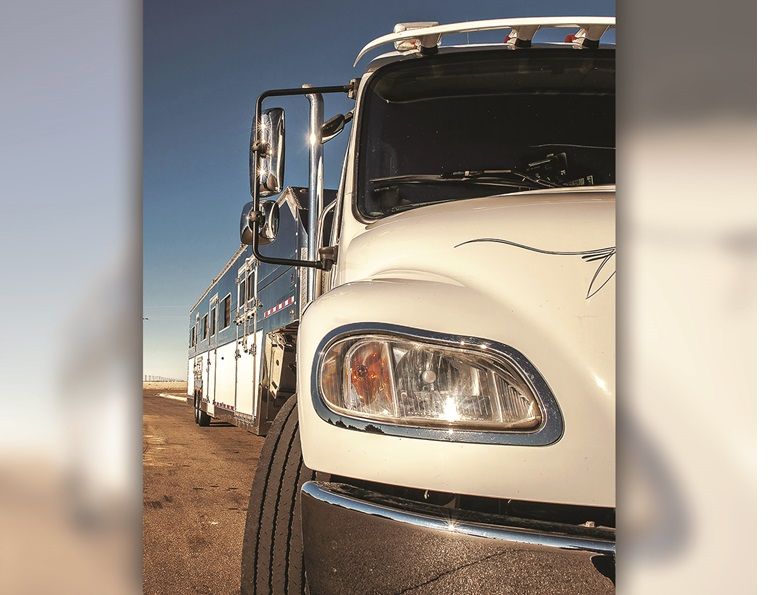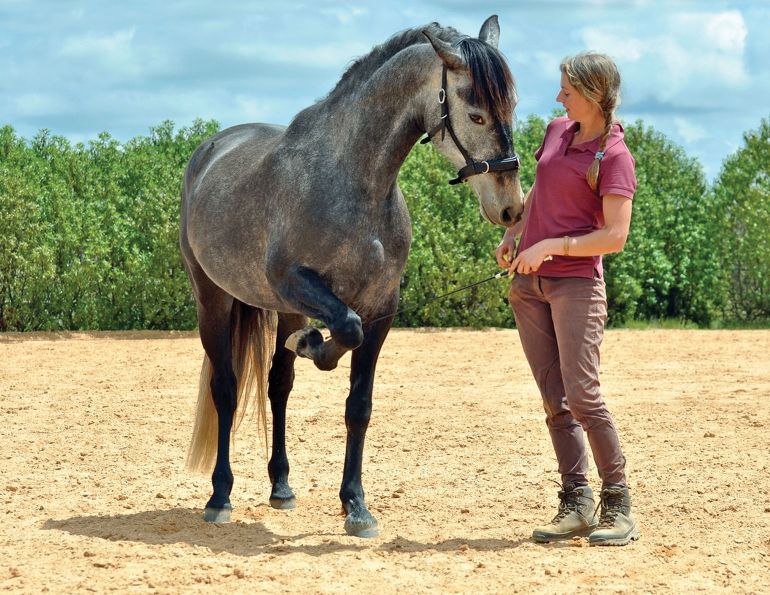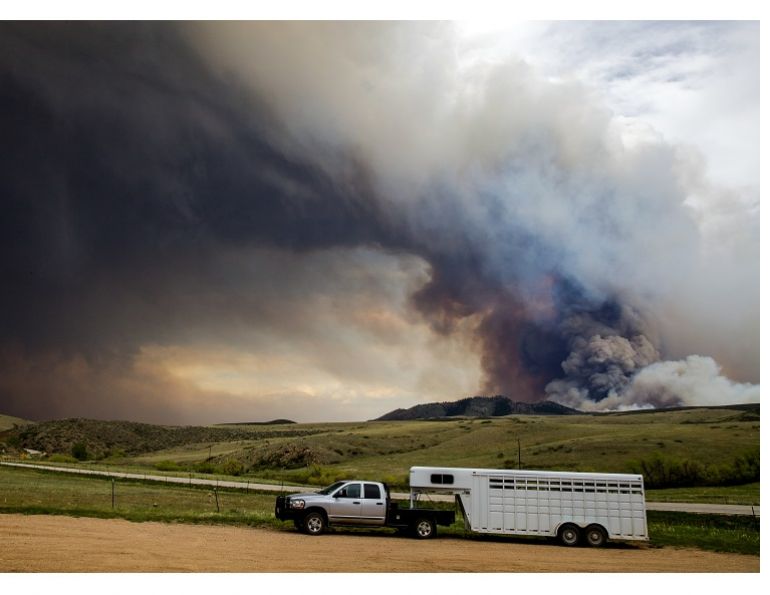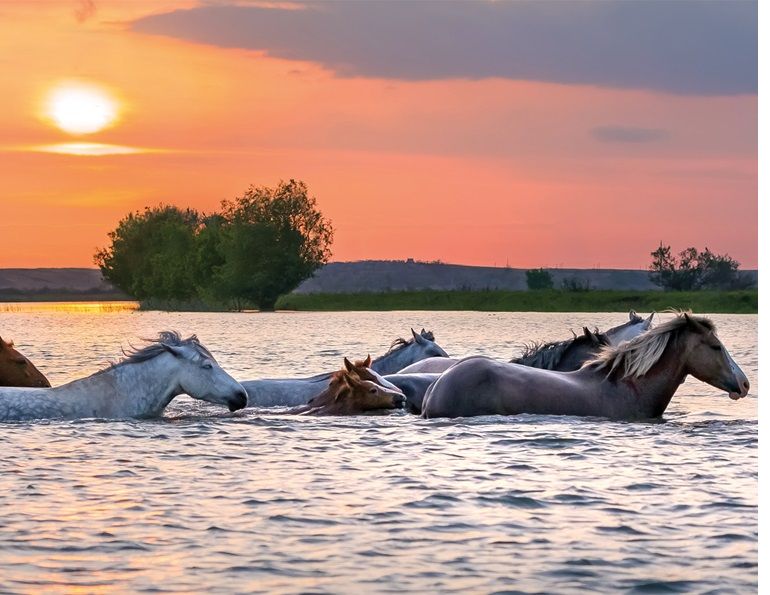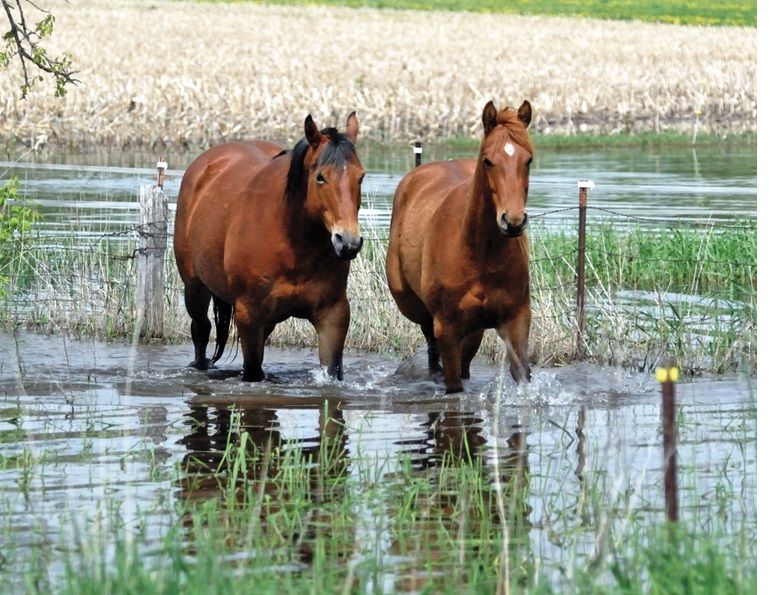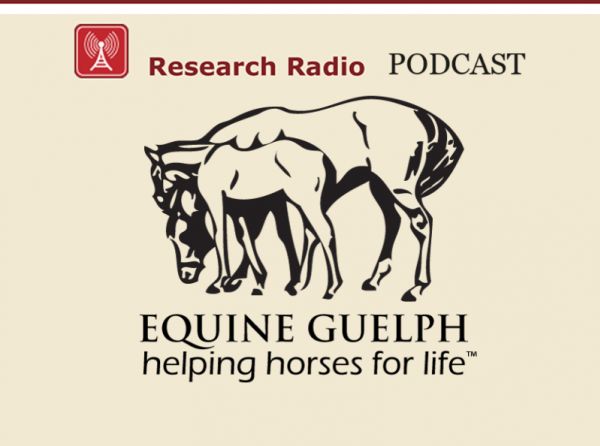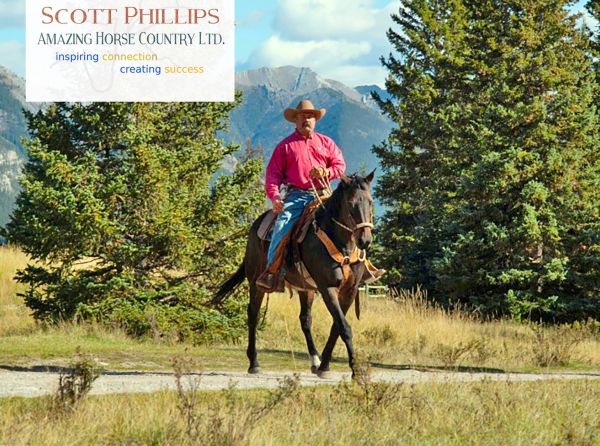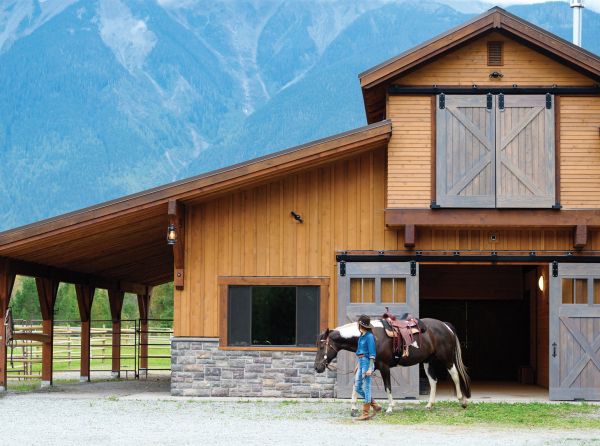By Will Clinging
I am frequently called on to teach young horses how to load into a trailer confidently and to help horses that are having trouble loading sort out what’s going wrong. I have written articles in the past about trailer loading, explaining why it is important to teach and detailing technique. I am not going to talk about technique here. I want to talk about other factors that lead to a horse loading well or having trouble loading.
If you have ever owned a horse that had difficulties loading you know how determined a horse can be to not get in the trailer. It is easy to accuse the horse of being stubborn or obstinate, or we can make excuses for them, especially if they have ever been hurt or scared in a trailer. Unfortunately, sympathy will get you about as far as being frustrated will — basically nowhere.
There is always a reason the horse will not load; we sometimes don’t look hard enough or we discount possible factors because we don’t allow the horse to have certain emotions. Things like separation anxiety, displacement anxiety, fear of the unknown, or anticipation of a past event repeating itself are all intangible and easily overlooked. There is often a question of who has authority, the horse or handler?
Trailer loading can easily be turned into an ego driven fight. We can’t let them win! Or it turns into a battle of intimidation tactics. When they are stressed, horses quickly learn to evade what stresses them. If we then stop these evasions, they can learn to resist in more intimidating ways, usually rearing, pulling back, or running backwards. This is often when we give in. We just want them in the trailer but we don’t want to fight, not really. The horse then becomes confirmed in the evasion that was effective.
Related: How to Haul a Horse Safely

Some horses, for various reasons, can be very determined not to get into a trailer. Don't let the situation escalate into an ego driven fight! Photo: AdobeStock/Anilin
There are many good trailer loading techniques being sold out there. Trainers are happy to sell you their trailer loading video; I even made one a few years ago (I never put it on the market but I do have one). These are all designed to teach a horse that is not scared out of his wits at the thought of getting into a trailer. It is relatively easy to convince a horse with little trailering experience to load nicely. It is another thing to teach a highly stressed animal that has a history of not loading or whose loading experiences have been bad. Most of the methods covered in a video don’t give the handler the tools to deal with things when they go wrong to the point of extreme defensive behaviour from the horse. At the point that your horse becomes violent all technique quickly goes out the window. Many a horse and handler go into aggressive mode. We get frustrated because this stupid, stubborn horse won’t get in the #$#@%%#! trailer. The horse is scared to the point of fighting for his life because the #$#@%%#! handler won’t leave him alone and doesn’t understand how scared he is. The biggest problem with this scenario is how emotionally charged the whole episode has become. It has turned into a personal attack from both ends of the lead rope.
Many of these horses know how far they need to go to back the handler down. They are often prepared to go further than we are. From his point of view, the horse has accepted that there is no easy way out. He is literally fighting for his life. Put yourself in his shoes for a moment: if you were cornered and you feared for your life you would fight. It is in all of us, the instinct to survive; if the options were fight or die you would not just lie down.
By the time the horse gets to this point there is no easy way to resolve the issue.
What has to happen is the horse has to become more involved in the process. The handler shouldn’t have to change techniques but he may need to take a different philosophical approach. There should often be more preparation. That means things like authority need to be resolved before you ever look at a trailer. The technique you are going to use should be practiced away from the trailer. If your horse has been hurt or traumatized by or in a trailer, emotional healing may need to be addressed before there is success. If this is the case, I have clients get their horse a Reiki treatment before I even think about trying to load their horse.
When these things are done the process around the trailer itself must take on a new dynamic. Our attitude must be more positive. We must have lots of time but also not turn it into a marathon session. We MUST NOT be emotional during the actual loading and we have to let the horse work through whatever he feels he needs to before he can think about getting in the trailer. It all comes down to changing the horse’s perception of what the trailer means to him. We may also need to change our idea of what success is. It could take several sessions to rebuild the confidence necessary for the horse to become consistent.
This all takes time, so don’t be in a hurry. If you expect it to all get better after you have a trainer out you could be disappointed. Or maybe, more importantly, your horse may be disappointed. Many trainers have had great success but any trainer that tells you he has never failed to get a horse to load is either lying to you or has not had much experience. I still remember the first time I couldn’t get a horse loaded. It was a blow to my ego. As a horse owner it is important that you don’t let any handler take advantage of your horse because their ego won’t let them quit.
The next time you attempt to load your horse, try to see it from the horse’s point of view. Success is achievable no matter how bad the horse has become; just remember there are more factors at play than we may think.
Related: How To Ready Your Horse Trailer for Spring Towing
Related: Reduce Your Horse's Transport Stress
Main Photo: Be patient when loading your horse the trailer and try to see things from his point of view. Credit: Shutterstock/Yaalan





